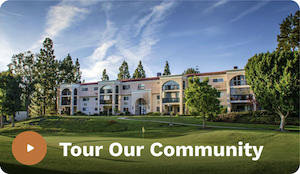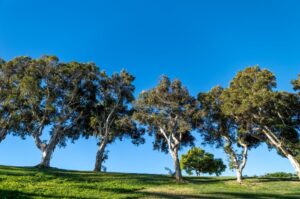Jamais un adage comme « le changement est la seule constante » ne s'est appliqué aussi parfaitement à la chronologie de la télévision et à la façon dont les gens la regardent. Le noir et blanc a cédé la place au Téléchrome, et trois chaînes ont succombé au vaste marché du câble, rapidement éclipsées par le « streaming » d'applications comme Netflix, Hulu et Max, pour n'en citer que quelques-unes. C'est l'avenir du contenu, mais ce ne serait pas aussi simple que de changer de chaîne pour Laguna Woods Village.
Le réseau de télécommunications à large bande qui fournit actuellement la télévision par câble aux résidents a été construit en 1999. Ce réseau hybride fibre-coaxial (HFC) a été déployé à l'échelle mondiale par les opérateurs de télévision par câble tout au long des années 1990.
Notre réseau HFC a maintenant 25 ans. Les équipements de l'ensemble du système, y compris ceux de notre installation principale de tête de réseau qui reçoit les signaux de télévision et les distribue sur notre réseau, ne sont plus pris en charge par le fabricant et les remplacements se font rares. La dégradation continue des équipements entraîne des pannes matérielles et logicielles, des erreurs système et des coupures de courant qui perturbent la connexion internet et la vidéo.
De plus, face à la flambée des coûts de programmation câblée (nous payons 1,4 million de livres sterling par an pour les chaînes actuelles) et au besoin croissant d'internet ultra-haut débit lié au streaming, une communauté de notre taille a besoin d'un réseau robuste capable de répondre à ses besoins considérables pendant des décennies. Une proposition est en cours d'élaboration.
Le haut débit ad hoc prend son envol
En 2019, le comité ad hoc GRF Broadband (BAHC) a chargé The Broadband Group (TBG), un cabinet de conseil en télécommunications de premier plan avec plus de 25 ans d'expérience dans le secteur, d'analyser notre système.
Après la pandémie, en 2022, TBG a fourni deux solutions standard du secteur dans son rapport « Broadband Services Pro Forma Scenario Analysis » : la division des nœuds (points de terminaison sur un réseau qui reçoivent, créent, stockent et envoient des données le long de routes distribuées) et le remplacement de notre réseau HFC actuel par un nouveau réseau optique passif (PON) uniquement en fibre optique.
Tous les opérateurs nationaux de télévision par câble ont adopté la fibre optique comme norme pour l'avenir ; tous prévoient de migrer leurs réseaux HFC existants vers la fibre optique. Le consensus du secteur est qu'un PON réduit les coûts d'exploitation et offre un débit plus important aux futurs abonnés. TBG a recommandé un plan de migration progressive vers la fibre optique.
Par la suite, la BAHC a demandé à VMS et à TBG d’obtenir des propositions de prestataires de services qualifiés pour détailler les coûts potentiels et les modèles commerciaux potentiels.
La chronologie s'accélère
TBG, en collaboration avec le personnel de GRF et de VMS, a effectué des recherches, collecté des données et participé à des présentations avec des fournisseurs de services pour promouvoir l'objectif d'apporter l'Internet par fibre optique à l'échelle de la communauté :
- 4 décembre 2023 : VMS a lancé un appel d’offres auprès de 14 fournisseurs de services Internet qualifiés.
- 1er mars 2024 : Huit fournisseurs potentiels ont soumis des propositions. La recommandation du TBG exige que le fournisseur de services construise et entretienne le réseau, ainsi que la fourniture d'un service Internet, mais que le GRF soit propriétaire de l'infrastructure. Seuls trois d'entre eux sont disposés à accepter cette recommandation et disposent d'une envergure suffisante pour desservir le village.
- Avril à août 2024 : Le personnel du VMS a fourni des mises à jour au conseil d'administration du BAHC et du GRF, qui ont ensuite fourni des orientations relatives au projet (session à huis clos).
- Septembre 2024 : Les prestataires de services potentiels ont effectué des présentations en personne au BAHC, au personnel de VMS et au TBG. Les trois entreprises ont présenté des propositions similaires et disposent des moyens financiers et opérationnels nécessaires pour constituer un réseau et fournir des services qui soutiendront le village de Laguna Woods pour les décennies à venir.
Restez à l’écoute des mises à jour régulières à mesure que le projet d’infrastructure de fibre progresse.
Pour en savoir plus sur le projet de réseau de fibre optique de la communauté, regardez Le PC Club de Laguna Woods Village présente : Paul Ortiz, L'avenir du haut débit à Laguna Woods Village (youtube.com) ou recevez un livre blanc détaillé, « Le projet technologique de nouvelle génération pour Laguna Woods Village, Californie », en envoyant un e-mail au directeur général des services haut débit paul.ortiz@vmsinc.org.





